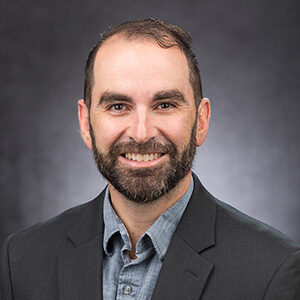Invitations to Practice Democracy

Nick Longo, Ph.D., professor of global studies, recently wrote a piece that appeared in Liberal Education, the magazine of the American Association of Colleges and Universities (AAC&U). Below is an excerpt and a link to the full piece.
In hallways and public spaces across Providence College, chalkboards, electronic screens, and whiteboards invite people to share their thoughts on timely and often contentious topics. Questions such as “What does American democracy mean to you?” and “Is there hope for American democracy?” prompt students, faculty, and other campus community members to crowd the boards with responses. Some comments: democracy means the ability to “have my own opinion,” “be able to agree to disagree,” and “work together to solve problems,” and many voices are “not heard as much as it is promised.” Other responses demonstrate hope for the future: “We must put in effort to work together to form a better tomorrow.” And, democracy is possible through “grassroots activism,” “conversations and food,” and, perhaps most presciently, “the education of new generations.”
These democracy walls—or Dialogue, Inclusion, and Democracy (DID) Walls—were first created in 2018 by our DID Lab, which I co-lead with Quincy A. Bevely, vice president for diversity, equity, and inclusion, as part of our efforts to catalyze civil discourse and a more inclusive culture on our Catholic liberal arts campus in Rhode Island. Since that time, students in the DID Lab have worked together to name important issues and craft questions about them for the DID Walls and campus-wide events. The DID Lab students, known as student dialogue fellows, commit a year to learning skills such as active listening, asking strategic questions, and facilitating difficult conversations. They work in pairs to oversee DID Walls at various campus locations and help facilitate face-to-face dialogues as part of a broader initiative called Conversations for Change. Funded by the Arthur Vining Davis Foundations, this initiative also supports public dialogues with the local neighborhood and faculty development work on integrating civil discourse into courses.





